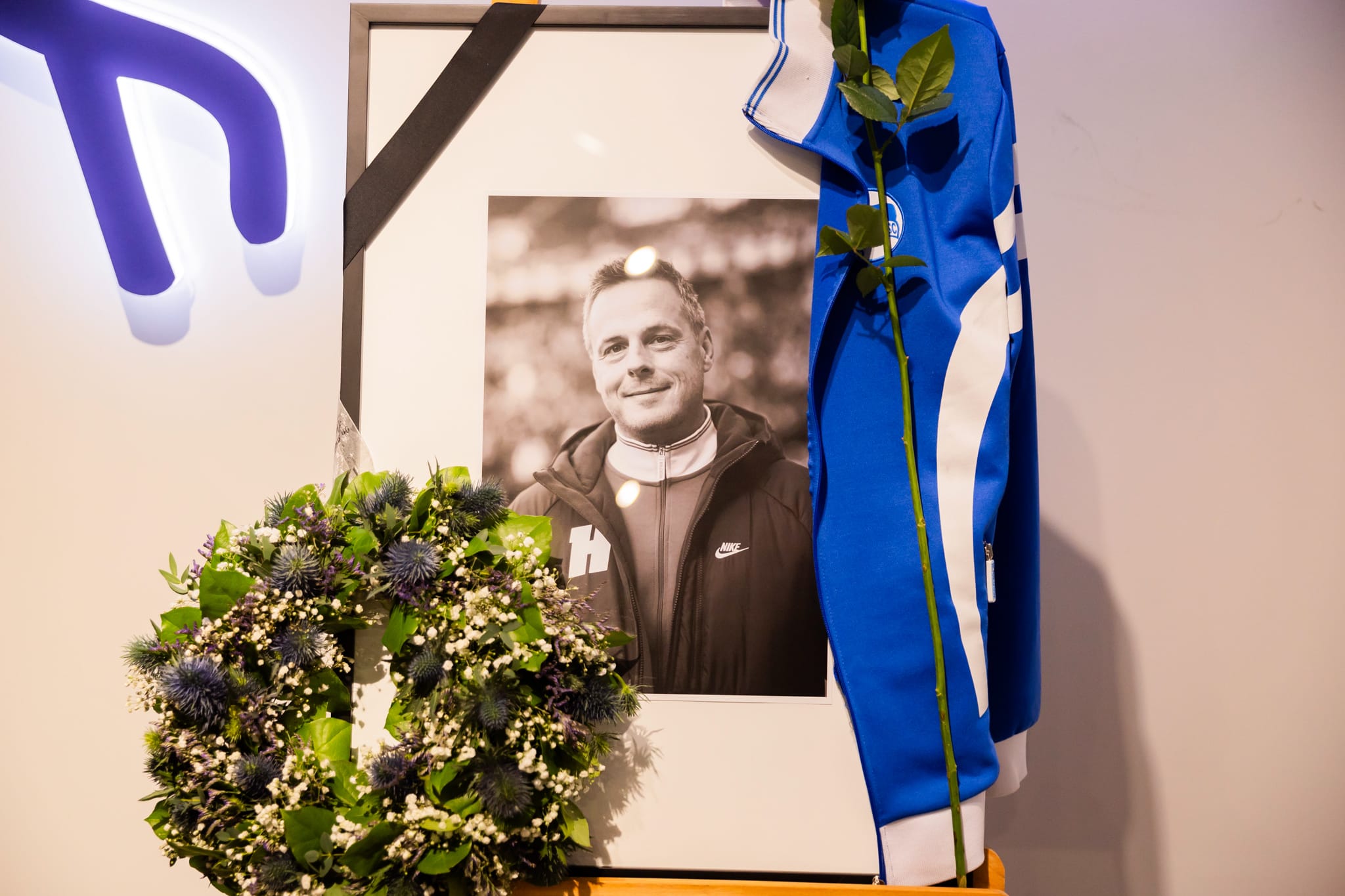Shockwaves reverberated around the German football scene on Tuesday January 16th, when the shock news of the sudden passing of the incumbent president of Hertha Berlin, Kay Bernstein, at the age of just 43.

A brief statement from the capital club confirmed the news, conveying the sadness felt throughout the club at the untimely passing of the man who was appointed to the role of president in June 2022.
Hertha BSC are mourning the death of Kay Bernstein.
The club received the terrible news on Tuesday that president Kay Bernstein has passed away unexpectedly aged 43. The whole club, its governing bodies and staff members are shocked and deeply saddened by the news. pic.twitter.com/uI8HGob8z0— Hertha BSC (EN) (@HerthaBSC_EN) January 16, 2024
Without any further context, his executive role at the club sounds unremarkable. Yet it is Bernstein's rise from being a passionate Ultra in the stands to holding the highest office at Hertha which reflects a typically German football story, as well as the love for the club that was ingrained within the man.
Bernstein was a well-known and popular figure across the German fan scene thanks to his activism and involvement amongst ultras groups and wider supporter initiatives. In a marked difference from the UK approach, German fans often come together to fight for a common cause, showing solidarity and strength in numbers, whether the opponent is the football authorities or government bodies.
Club rivalries, and often hostility, are set aside for meetings, networking and campaigning to take place on a particular matter. It was this involvement that meant Bernstein's name became a familiar one to his counterparts at other clubs.
Kay Bernstein as an emerging leader
Back at Hertha, Bernstein was emerging as a leader. In bygone days, he was a founding member of the Ultras group Harlequins Berlin '98 as well as a capo – the fan who conducts the chants and songs with the use of a megaphone.
When he stepped into the Presidency in 2022, Hertha was a club on the brink, at a low ebb on and off the pitch. Through his journey, he would have to balance his passion with his experience and the greater good of a professional football club, but it was clear his background at the club would be the foundation upon which his tenure would be built.
At the time, he stated Hertha was in “intensive care” but could now be “detoxified from the inside and made healthy.”
Bernstein made progress in key areas, ensuring fan representation was present and giving the club members their place and not subservient to corporate interests. He is said to have condemned the reliance on TV money, he was in favour of a salary cap, as well as being a firm advocate of the traditional 3.30pm Saturday kickoff in Germany for top-flight football.

A return to solidarity
Football Ground Guide learned that Bernstein used terms such as “Just do it” and “We Herthaners” to connect with fellow fans and members, to return a common cause and solidarity at the club, after the fractured state of Hertha Berlin when he took office.
Despite Die Alte Dame suffering relegation to 2. Bundesliga, there were signs of recovery as reflected in the increased attendance at the Olympic Stadium over the past season or two.
Kay Bernstein's election as President of Hertha BSC was a victory for the club's supporters, the rank and file and a setback for the establishment, who are traditionally led by financial considerations and corporate interests. Yet it was more than that, a glowing endorsement for the active, thriving fan activism that underpins all that is authentic in German football.
Many are quick to blanket label Ultras as thugs and destructive influences but Bernstein's story, one of a love affair with Hertha, is quite the opposite.
It also reflects the huge gulf between the supporter experience and stakeholding in Germany compared to England, as well as the increasingly dominant theme of foreign investor ownership which is increasingly prevalent in the Football League as well as the Premier League.
As for Kay Bernstein, he certainly made his mark at his beloved Hertha so it will be interesting to see what kind of legacy emerges after his death.
His sad, sudden passing leaves a family and wider fan base in mourning with a reminder that football is the most important, unimportant thing in the world.

